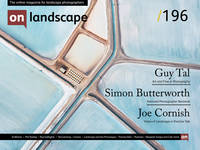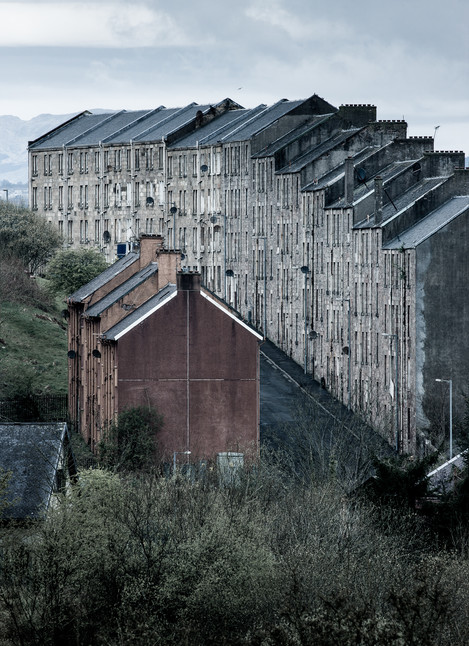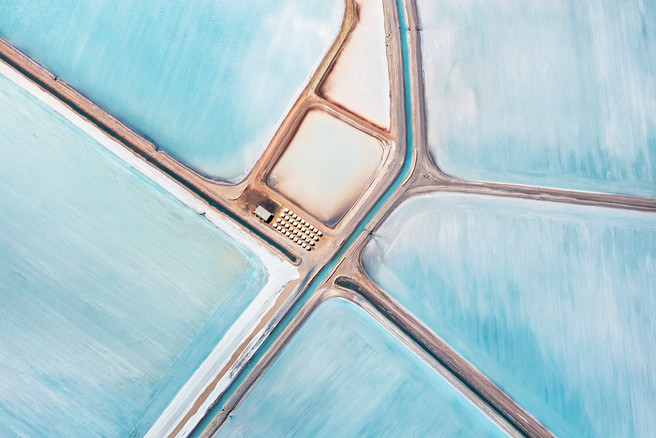Featured Photographer Revisited

Simon Butterworth
Simon Butterworth is a photographer and musician who lives in the Scottish Borders.
simonbutterworthphotography.com

Michéla Griffith
In 2012 I paused by my local river and everything changed. I’ve moved away from what many expect photographs to be: my images deconstruct the literal and reimagine the subjective, reflecting the curiosity that water has inspired in my practice. Water has been my conduit: it has sharpened my vision, given me permission to experiment and continues to introduce me to new ways of seeing.
Simon has given us a delightfully concise bio, so I’ll add a little. His images have been widely published; he has had success in high profile competitions including the Sony World Photography Awards, the International Photography Awards and the UK’s Landscape Photographer of the Year Competition; and he has written for On Landscape on several occasions. Looking through his website I was especially interested in his aerial images from the Scottish Borders, and we thought it would be good to find out more about what he’s been up to recently both at home and abroad.
Tim spoke to Simon shortly after his image ‘Condemned’ was confirmed as the overall winner in the 2012 ‘Landscape Photographer of the Year’ competition amid, it’s fair to say, some controversy associated with the disqualification of the image that was initially announced winner. You can read the original interview here. It seems like the obvious place to begin…
Tim spoke to you back in November 2012, the weekend after ‘Condemned’ was confirmed overall winner in that year’s ‘Landscape Photographer of the Year’ competition. Looking back now, what perspective have you gained on how that came about, and the difference that winning made for you and your photography?
With the benefit of hindsight, I can see how the 2012 edition of Landscape Photographer of the Year confirmed a path that was latent at the time. My early years in photography were spent trying to get the maximum number of clicks on sharing sites such as ePHOTOzine and photo.net, and I came to equate the value of work with its popularity.
My more esoteric efforts were kept private and I publicly displayed only work that conformed to the aesthetic prevalent in popular landscape photography at that time. My winning shot had only been included in the entry to make the numbers up. When it won I was not only completely staggered, but I began to see the importance of originality and following my own ideas.
The 2012 LPOTY was mired in controversy, from the expulsion of the original winner to my own upgraded contribution. To say my winning shot was unpopular would be an understatement; the online opprobrium continued for months. Up to this point I had dreaded public criticism of my photographs, but faced with a tsunami of bile I had no choice but to suck it up. In the end I grew to love it. I had a feeling of loss when I was no longer savaged in the pages of fishing magazines or hiking websites. I was left with a feeling that whatever I did in the future, public reaction couldn’t possibly be any worse. The whole experience gave me the confidence to plough my own furrow and to hell with what anyone thinks. Three years later I once again had a positive competition experience when the Blue Fields series was shortlisted in the Professional Landscape category of the Sony World Photographic Awards. The publicity was huge and I’m still selling prints on the back of it more than three years later.
At the time you were working as a full-time musician. Has your love of photography now altered the balance in your life, and how much time can you devote to it?
At the time I was - and still am - working as a full time musician, a clarinet player to be precise. The hours are good but the commitment to maintain playing standards has to be rigorous. Making recordings and performing regularly in public requires you to be match fit, both mentally and physically. Playing music is not a job I could take a long break from and come back to if other things didn’t work out, for that reason photography has in many ways been a lower priority than music. Having said that, the two things work brilliantly together. The orchestra regularly does international concert tours and I can often find the time to stay on for a couple of weeks to do some photography after the other players have gone home. I feel very lucky to spend my days doing things I’m passionate about - both of which started as hobbies.



